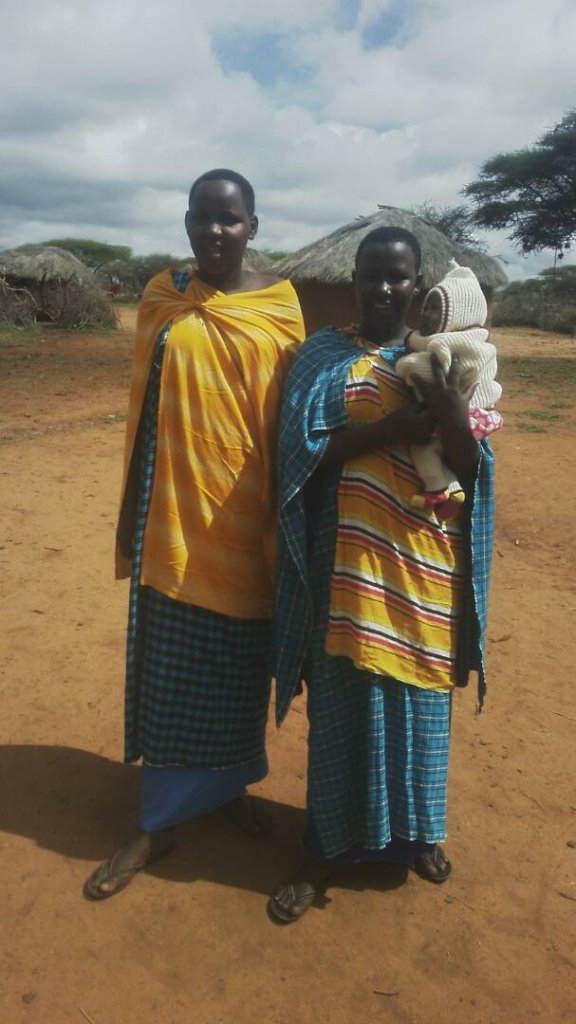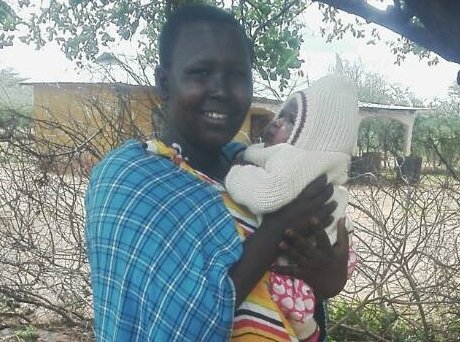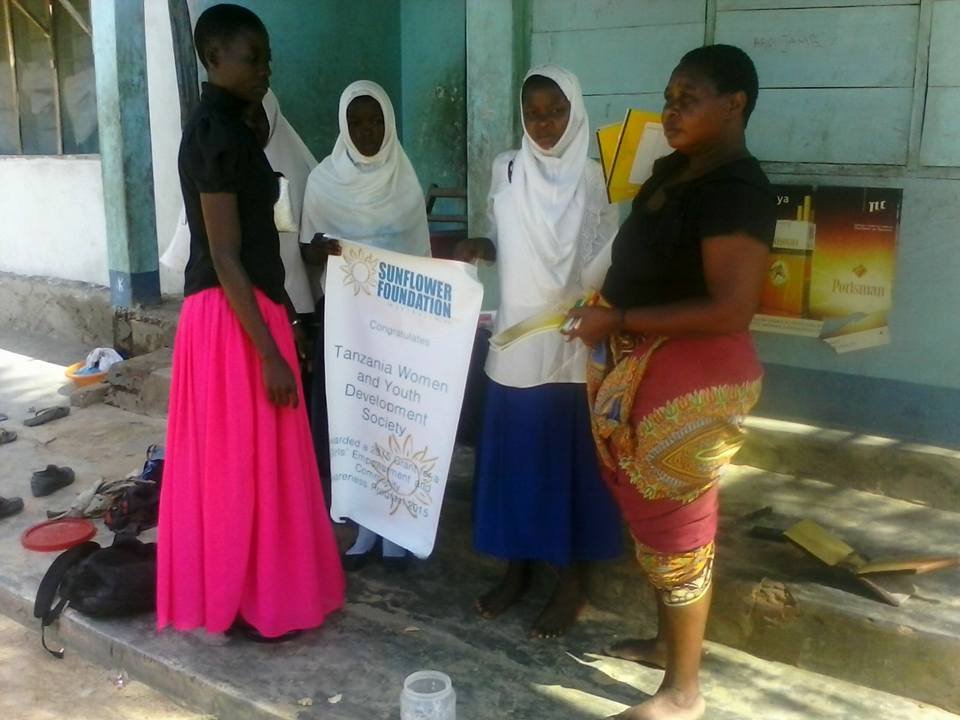By Kim Power | Project leader
PEYAI (15) and NAPERERI (17) are two of the Maasi girls living in Ngarenaibo and Kimokowa villages who were expelled from school under Kenyan law when they became pregnant and, for the same reason, they are not permitted to return after giving birth. Peyai's story is particulary telling as it demonstrates the disruption to existing cultural pratice. Peyai's parents arranged an (illegal) child marriage for her. Bet Peyai is of the generation of girls that attend primary school. She wanted to continue her studies. Frightened, she ran away from her village to avoid the marriage, only to encounter a man, who said he would help her. Instead he abused her, and abandoned her when she became pregnant. Poverty forced her return home. Fortunately, Peyai had attended a Tanzanian Women and Yourth Development Society (TWYDS) Project workshop prior to her pregnancy and contacted their director. Peyai and her parents met with the Hon. Sophia Mwakagenda and the result was that the marriage was cancelled. But school was still legally impossible. As part of this project both she and Napereri are learning life skills that will allow them to live healthier lives and earn an income. This support is aimed at empowering them to cope with the extreme stresses caused by their situation.
Peyai told us
“I really liked school, I liked my friends and teachers and I liked English. I was not naughty (she giggles) I was performing just fine but one day my father said I will not go back to school again because there was a man ready to marry me (her eyes get watery) ... if it was not for Sophia I would have lost all hope...when I told her my problem, she listened and she confronted my parents and the wedding was stopped...I am very grateful if she and the teachers (field officers) did not come to talk to us I don’t know what would happen to me and the baby, that is why I named her Sophia...”
Our ultimate aim is to keep girls like Peyai and Napereri in school, so our programs aim to break down prejudice against educating girls amongst Maasai elders and other stakeholders, to empower the girls by
But change is happening. Thanks to the diligent work of TWYDS with village elders and Government stakeholders, Project Officer Giz Mdoe was able to report:
"Elders who otherwise uphold traditional practices that undermine children's and women's rights have opened their doors to us and they have allowed their children and wives to come to the workshops and they themselves joined on occasion. We even got invited to a rite of passage ceremony that occurs once every 20 years!"
To date, Sasa Nawez Stages 1 & 2 has reaed 1500 girls and young women. If you would consider making a monthly donation, ir will help us reacch another 500 girls and 1500 Young women.
Impact across three classes in three schools
Variable Prior to project First quarter data % Change
AV Weekly Absentees 21 15 -29%
Pregnancies Reported 30+ 29* 0%
per quarter in Ward
* All 29 were forced to drop out by law.
Empowerment Program #150 Young Women
Variable Prior to project After Project % Change to Minimum
Income 0- 300 000 TSH 30 000-450 000TSH +30000%*
Savings 0-50 000 TSH 2000-50 000TSH +2000%
Women Owned Bus. 10 15 50%
*30,000TSH = AUD$17.74
Links:
Project reports on GlobalGiving are posted directly to globalgiving.org by Project Leaders as they are completed, generally every 3-4 months. To protect the integrity of these documents, GlobalGiving does not alter them; therefore you may find some language or formatting issues.
If you donate to this project or have donated to this project, you can receive an email when this project posts a report. You can also subscribe for reports without donating.




